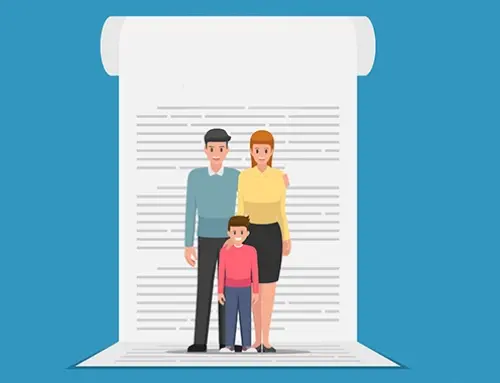Contents
The Do’s and Don’ts of Texting Clients: An Ethical Guide for Lawyers
These days, clients expect prompt responses and easy access to their legal counsel, and texting has become a popular method of communication for both lawyers and clients. While lawyers texting clients can enhance accessibility, it is important to follow specific guidelines to ensure confidentiality and professionalism. For many clients, the accessibility provided by lawyers texting clients offers a reassuring sense of support throughout their case. Many clients appreciate the convenience of being able to text lawyer with urgent questions, especially during busy work hours. This guide covers essential practices and potential pitfalls in texting clients, ensuring both effective communication and adherence to professional standards.
The Importance of Ethical Communication in Law
Many clients feel more connected and informed when they have the option to text a lawyer directly with any pressing concerns. Texting is a fast, convenient way to send quick updates or reminders to clients, and it is easy to see why many lawyers and clients prefer it. Lawyers texting clients is becoming more common, but legal professionals must maintain ethical boundaries in all communications. For lawyers, even a seemingly simple message can quickly become a legal or ethical issue if it is not handled carefully. Mistakes in digital communication can lead to ethical breaches, miscommunication, or even liability issues. That is why having a clear, responsible texting policy is crucial. Not only does it protect your clients and their information, but it also helps safeguard your practice from unintended pitfalls.
Why Should a Lawyer Text?
A lawyer might choose to text because it offers a quick and efficient way to communicate with clients, especially for brief updates, scheduling, or confirming appointments. With modern communication tools, it is easier than ever to text a lawyer and get a prompt response without waiting for an in-person meeting. Texting clients allows for timely communication, which can help keep clients informed, reassured, and engaged without waiting for a call or email. In certain situations, like time-sensitive updates or when clients are hard to reach by phone, texting can bridge the communication gap effectively. Additionally, texting can enhance client satisfaction by making the lawyer accessible and responsive, as long as boundaries are set, and it is used for suitable, non-sensitive information. Some law firms now offer client portals where you can securely text your lawyer, keeping all communication in one place.
The Do’s of Texting Clients
Establish Clear Boundaries
Before adopting text messaging as a primary communication tool, lawyers should inform clients when texting is appropriate. Texting can be ideal for quick, non-sensitive updates and appointment reminders but should not be used for in-depth case discussions. Clients should understand the messages suitable for texting and know when they can expect a response. Establishing boundaries for “after-hours” texts is also essential to manage expectations and maintain a healthy work-life balance.

Use Secure Messaging Platforms
Standard text messages often lack sufficient security for legal communications. For sharing sensitive information, lawyers should use encrypted messaging apps like Signal or WhatsApp, which offer end-to-end encryption to safeguard client confidentiality. In addition, many legal practice management software solutions, such as RunSensible, include secure messaging features designed to meet data protection standards, providing a reliable and compliant option for confidential communications.
Maintain Confidentiality
Always verify the recipient’s information before sending a text message to prevent accidental disclosure. Limit texting to general updates, avoiding case specifics unless a secure app is used. Text messages are more vulnerable to compromise than email or secure messaging options within a client portal, which offer greater protection for sensitive information.
Document Conversations
Each text message with a client should be documented in their file for accountability and record-keeping. Many practice management systems allow users to upload screenshots or manually enter summaries of text interactions. If a client communicates an important decision via text, follow up with a formal email or document to confirm and document the decision clearly.
Obtain Informed Consent
Clients may be unaware of the potential risks involved in texting sensitive information. Before using texting as a communication tool, it is essential to explain its benefits and limitations, including privacy concerns, and obtain the client’s consent. This consent should be documented in writing within the retainer agreement or as a separate acknowledgment, providing clear evidence of the client’s understanding and acceptance of this communication method.
Using Disclaimers and Disclosures
Including disclaimers in client texts is essential for minimizing legal risks and clarifying that text messages are not formal legal advice. Disclaimers help define the communication’s scope, protect confidentiality, and set expectations for follow-up. Phrases like “This is not legal advice” can prevent misunderstandings and remind clients that complex issues may require further discussion. In automated messages, disclaimers are also helpful in encouraging secure communication for specific inquiries. Overall, well-placed disclaimers support ethical practices by avoiding misleading clients and ensuring clear, responsible communication.
The Don’ts of Texting Clients
Don’t Text Without Consent
Never assume that a client prefers texting as a communication method. While some clients appreciate the convenience of quick text updates, others may view it as unprofessional, intrusive, or simply not secure enough for legal matters. Before using text messages, discussing this option with the client and explicitly asking if they are comfortable with text communication is essential. Explain how texting will be used for appointment reminders or simple updates and clarify that it will not be relied upon for detailed case discussions. Obtaining the client’s consent respects their communication preferences, establishes trust, and ensures that both parties are on the same page. Documenting this consent in writing, either in the retainer agreement or as a separate form, adds clarity and professionalism to the arrangement.
Avoid Sensitive Discussions via Text
While texting can be convenient for confirming appointments or providing general updates, it is best to avoid discussing specific case details through this medium, especially when it involves sensitive or confidential information. Text messages are easily accessible, often lack encryption, and can inadvertently expose private details if viewed by unauthorized individuals or accessed on unsecured devices. Moreover, the brief and informal nature of texting can lead to misunderstandings, incomplete explanations, or misinterpretations, particularly in complex legal matters. To ensure clarity and provide comprehensive legal guidance, reserve detailed advice for phone calls, in-person meetings, or secure emails, where information can be thoroughly documented and securely stored. This approach protects client confidentiality and upholds professional standards by allowing for complete, well-documented communications that reflect the careful attention needed in legal discussions.
Don’t Text Under Pressure or While Distracted
Responding to client texts quickly may seem efficient but rushing to reply under pressure or while distracted can compromise the quality and professionalism of the communication. Quick, off-the-cuff responses are more prone to errors, ambiguous wording, or unintended tones that might be overly casual, confusing, or unprofessional. It’s essential to take a moment to formulate responses carefully, ensuring they are clear and respectful and maintain the professional tone expected in the attorney-client relationship.
Avoid using overly informal language or shorthand that could be misinterpreted, as this can diminish the seriousness and clarity of your communication. Clients rely on their attorneys for guidance and support, and every interaction—no matter how brief—reflects the integrity of the legal service they are receiving. Maintaining a composed, professional tone and avoiding rushed replies protects against misunderstandings and reinforces a respectful, clear line of communication that supports trust and professionalism in the attorney-client relationship.
Don’t Ignore Jurisdictional Rules
Each jurisdiction has specific guidelines for attorney communication, particularly concerning confidentiality and the retention of client records. Before integrating text messaging into client communications, familiarize yourself with the rules specific to your jurisdiction to ensure compliance with confidentiality and documentation requirements. Many jurisdictions impose strict confidentiality standards on electronic communications, including texts. They may require that these messages be handled with the same level of care as other forms of client communication.
Also, some jurisdictions mandate that lawyers retain all client communications for a specified period to preserve a complete record of the case. A reliable process for archiving text messages and documenting them in the client’s file is required to adhere to these retention requirements. Many legal practice management systems offer secure storage options for text messages, simplifying tracking and maintaining records. By following these jurisdictional rules closely, you not only comply with legal requirements but also protect your clients’ information and uphold the integrity of your practice.
Avoid Informal or Implicit Agreements
With its informal tone and brevity, text messaging can easily lead to misunderstandings, particularly when discussing sensitive topics like fees, contractual obligations, or formal agreements. It is necessary to reserve these conversations for more secure and thorough methods like in-person meetings, emails, or client portals, where details can be clearly outlined and documented.
Avoid language in texts that could be interpreted as a promise, guarantee, or binding commitment, as casual phrasing can unintentionally create unrealistic expectations or mislead clients. Instead, focus on maintaining factual, concise, and accurate language, staying within the bounds of what is achievable and legally sound. By keeping texts clear, direct, and free from any suggestion of a guarantee, you protect the attorney-client relationship from misunderstandings and ensure that expectations remain realistic and grounded. Properly managing the tone and content of text communications reinforces professionalism and minimizes the risk of implicit agreements or unintended obligations.
Enhance Client Communication with RunSensible’s Text Messaging Feature
RunSensible’s text messaging feature streamlines client communication for law firms, offering a fast and effective way to keep clients informed. With capabilities to send automated reminders, appointment confirmations, and payment notifications, firms can reduce no-shows and delays while staying connected with clients. Each message is securely stored within RunSensible’s CRM, ensuring a complete and centralized record of communication accessible to team members as needed. This helps law firms maintain a cohesive communication history, aiding in seamless client interactions and improving workflow.
RunSensible supports compliance with legal communication standards, safeguarding client confidentiality in all messages. It empowers lawyers to create custom text templates for client updates, enabling firms to deliver professional and consistent messages without the added time spent drafting each one. Notifications for client replies ensure that responses are timely, preventing missed communications and enhancing client engagement. These messaging tools are valuable to RunSensible’s suite, promoting efficient, secure, and consistent interactions that elevate the client experience.
Frequently Asked Questions
Can a lawyer text a client?
Yes, lawyers can text their clients, but some essential ethical considerations must be remembered. Texting can be a convenient way to communicate with clients, especially for quick updates or scheduling. Still, lawyers need to follow best practices to ensure confidentiality, professionalism, and compliance with ethical guidelines.
Is texting a good way to communicate with a lawyer?
Texting can effectively communicate with a lawyer for brief updates, scheduling, or quick questions, offering convenience and immediacy. However, it is generally best reserved for non-sensitive matters due to potential confidentiality issues and the challenges of documenting texts for legal records. Text messages may lack the depth needed for complex discussions and can risk miscommunication due to their informal nature. Secure methods like phone calls, emails, or client portals are preferable for sensitive or detailed case updates. Discussing communication preferences and setting boundaries can ensure texting is used effectively alongside other, more secure communication channels.
Should lawyer text messages be stored in a client file?
Yes, lawyer text messages with clients should be stored in the client file. This documentation is essential for maintaining a comprehensive record of communications, which can be crucial for case management, ethical compliance, and protection in case of disputes or misunderstandings. Storing text messages in the client file ensures that all exchanges, including those done via text, are documented similarly to emails, letters, or call notes. Using practice management software like RunSensible helps lawyers archive these communications systematically and keep the client file complete and organized.
Final Thoughts
Texting can be an excellent tool for keeping clients in the loop quickly and efficiently, but it has challenges. Setting clear boundaries, using secure messaging platforms, and maintaining thorough documentation are essential practices for lawyers looking to integrate texting responsibly. As part of modern legal practice, lawyers texting clients must balance the need for timely updates with the ethical considerations surrounding written records. By adhering to these best practices, lawyers can leverage the accessibility and immediacy of texting without compromising client confidentiality, professionalism, or ethical standards. Implementing a thoughtful texting policy that aligns with client needs and legal obligations enhances communication and strengthens trust, ultimately fostering a more responsive and client-centered practice.
Disclaimer: The content provided on this blog is for informational purposes only and does not constitute legal, financial, or professional advice.







